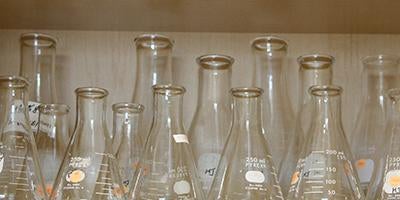Program Description
The Pitt Dental Medicine Department of Dental Anesthesiology directs and coordinates the three-year, CODA-accredited, dental anesthesiology residency program. The goal of this program is to prepare dentists to manage pain and anxiety in adult, pediatric and special needs patients by using pharmacologic and non-pharmacologic techniques.
A significant portion of the Residency Program in Dental Anesthesiology is a unit of the medical anesthesiology residency program, administered through the UPMC Medical Education Program (UPMC-MEP).
At the conclusion of the program, the dentist will earn a certificate in dental anesthesiology and be proficient in providing all levels of anesthesia services for ambulatory patients undergoing a variety of medical and dental procedures.
A maximum of four dental anesthesiology residents are selected each year. They have the same responsibilities and are expected to meet the same competencies as their medical counterparts.
The first year of the resident’s clinical experience begins at the University of Pittsburgh School of Dental Medicine with the resident attending all introductory courses and conferences in anesthesiology intended for post-graduate first-year residents. The dental resident becomes familiar with the anesthetic management of patients undergoing an array of dental procedures, including pediatric, special needs, oral surgery and implant surgery.
Rotations
Within this first year and a half, one month is devoted to training in each: Internal Medicine, Critical Care Medicine, Pediatric Emergency Medicine, and Cardiology/Pulmonology.
The second- and third-year residents continue with rotations through UPMC Presbyterian and Montefiore Hospitals, UPMC Mercy, UPMC St. Margaret’s, Children’s Hospital of Pittsburgh of UPMC, and Magee-Womens Hospital of UPMC. During this rotation cycle, residents will participate in the anesthetic management of patients undergoing general surgery, complex head and neck procedures, orthopedic surgery, and transplantation operations. Three months at UPMC St. Margaret’s will provide experience in a high-paced operating room that prepares the resident for private practice. Regional anesthesia and advanced pain management techniques are also developed. Children’s Hospital of Pittsburgh of UPMC offers a diversity of experiences in managing the anesthetic requirements of children of all physical sizes and ages who are undergoing a wide variety of surgical procedures. Magee-Womens Hospital of UPMC gives the resident an opportunity to learn about epidural and spinal anesthesia techniques intended for obstetric procedures along with general surgery experience in the hospital operating rooms. Magee-Womens Hospital of UPMC utilizes an after-hours call schedule. The resident serves at the University of Pittsburgh School of Dental Medicine for several months throughout the final 2 years educating the incoming residents and rotating with the part-time faculty in ambulatory settings to prepare them for private practice.
A focus of the training includes developing skills in the management of special needs patients receiving dental care. The University of Pittsburgh School of Dental Medicine has an active Center for Patients with Special Needs that provides the resident with a unique opportunity to provide anesthesia services to this underserved population. Residents will take part in regular journal reviews of current literature and a structured lecture series in anesthesiology. In addition, residents are expected to attend at least one national conference per year and initiate work on a mentored clinical research project.
Goals and Objectives of the Program
Mission Statement of the Department of Dental Anesthesiology
- The Department of Dental Anesthesiology is a group of highly committed individuals dedicated to the education and training of dental students, dentists and dentist anesthesiologists in the best principles and practices of dental anesthesiology.
Vision Statement of the Department of Dental Anesthesiology
- We will foster ethics and professionalism and leadership through example
- We will dedicate ourselves to excellence in education, patient care and research
- We will strive to always ensure the well-being and safety of our patients, with special consideration for children, the elderly and infirm, and those with special health care needs
- We will maintain and nurture our inter-professional association
Curriculum
Didactic
- First-year residents take part in a weekly, one-year lecture series at the dental school.
- Second-year residents will take part in a 20 day anesthesia course with the MD anesthesia residents.
- All residents take part in a monthly journal club at the dental school.
- Many of the rotations will have daily didactic lectures during the rotation (Emergency Medicine, Critical Care Medicine, Children’s Hospital, etc).
Clinical
Please see above in Description and Rotations
Program Requirements
Applicants must be graduates of a United States or Canadian accredited dental school and be eligible for state licensure.
Benefits, Stipend, Tuition & Fees
Residents in dental anesthesiology receive standard postgraduate salaries and benefits provided be GME.
Application Process
The applicant must submit the American Dental Education Association Postdoctoral Application Support Service (ADEA PASS) application and register for the Match Program.
For additional information about the Dental Anesthesiology Residency Program application process, please contact
Department of Dental Anesthesiology
412-648- 8401
Email the Department of Dental Anesthesiology
Research
The department stresses that residents participate in some manner of research (case report, review article, survey, novel drug, etc) that can be submitted for publication.
The advanced education in general dentistry program is accredited by the Commission on Dental The advanced dental education in general dentistry program is accredited by the Commission on Dental Accreditation (CODA). The Commission is a specialized accrediting body recognized by the United States Department of Education. The Commission on Dental Accreditation can be contacted at 312-440-4653, or at 211 East Chicago Avenue, Chicago, IL, 60611. The Commission's web address is https://www.ada.org/en. The Commission on Dental Accreditation has accredited the postdoctoral program in advanced education in general dentistry.
One- to four-week externship for third- and fourth-year dental students interested in a career in dental anesthesiology

Committed to the advancement of the discipline of dental anesthesiology to improve patient care


